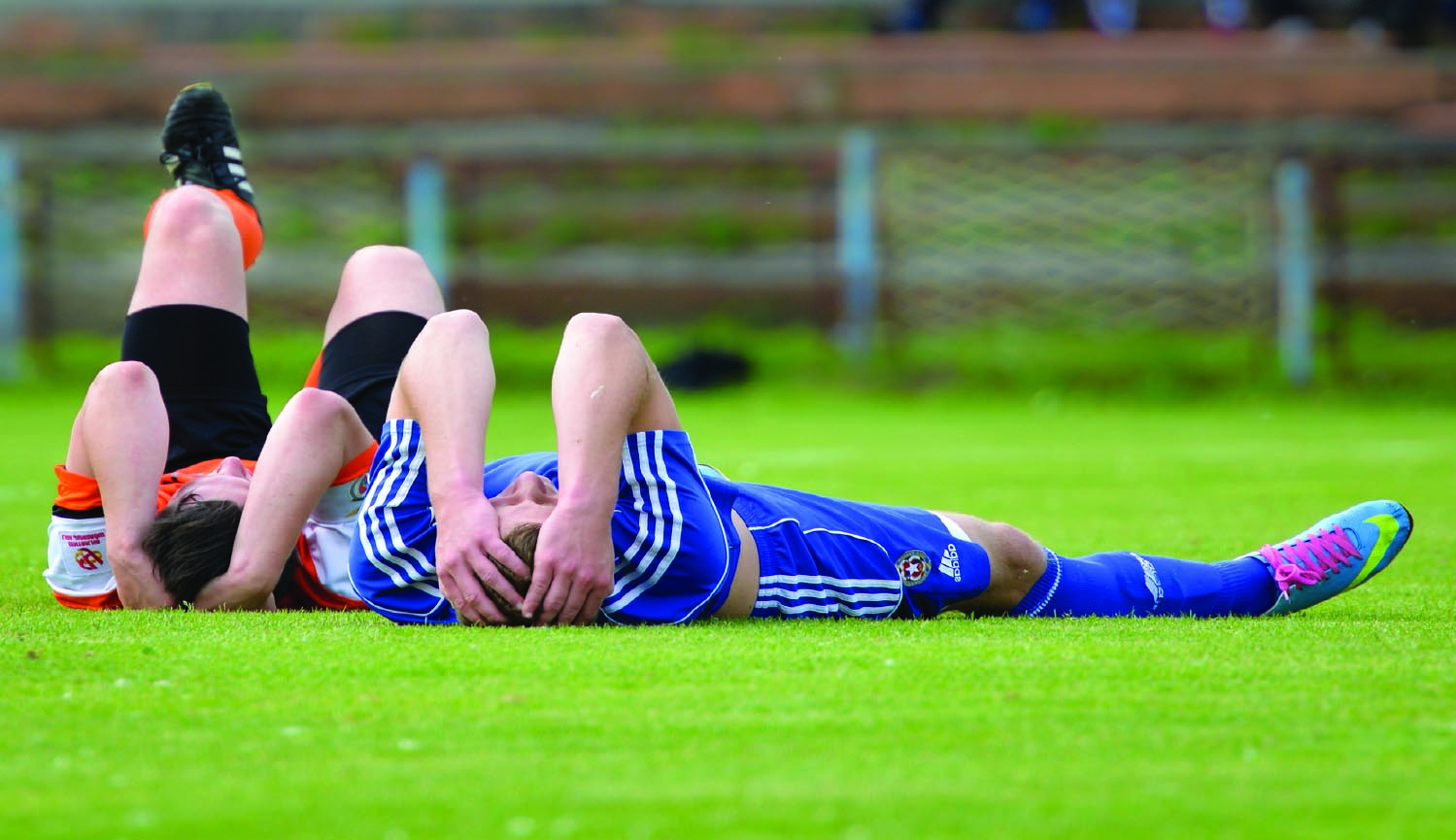
08 Apr POSSIBLE CONCUSSION: When to Call the Doctor
In recent years, there has been growing awareness of sports-related concussions. It has been the subject of movies, TV programs, radio broadcasts, and other media outlets. Parents, schools, and other organizations are starting to question whether or not it is safe for children (or adults) to participate in sports activities, particularly high velocity sports with physical impact.
HEAD INJURIES OR CONCUSSIONS
Don’t take chances with a concussion or any other head injury.
A concussion is defined as a mild traumatic brain injury as a result of a blow to the head or body which causes the brain to move rapidly within the skull. This injury causes brain function to change due to physiologic and chemical changes in the brain which can result in a variety of symptoms such as a brief loss of consciousness, headache, nausea/vomiting, dizziness, vision changes, light/sound sensitivity, loss of balance, mood/personality changes, poor concentration or mental slowness, lethargy, and changes in sleep patterns. Not all symptoms are present after a concussion, and it is important to note that only 10% of persons with a concussion experience a loss of consciousness.
Some symptoms warrant immediate medical attention to make sure that a more serious injury has not occurred. These include:
- Headaches that get worse
- Weakness, numbness or decreased coordination
- Repeated vomiting
- Cannot be awakened
- Have one pupil–the black part in the middle of the eye–larger than the other
- Convulsions or seizures
- Slurred speech
- Getting more and more confused, restless or agitated
Symptoms in small children that require immediate medical attention:
- Any of the danger signs for adults (see above)
- Child won’t stop crying
- Child can’t be consoled
- Child won’t nurse or eat
The signs and symptoms of a concussion vary in terms of severity and duration, but for most individuals, a gradual pattern of recovery occurs over a period of several weeks to 2-3 months. Research shows that most people (95% or more) fully recover from uncomplicated concussions in 3 months or less (McCrea, 2008).
According to the Centers for Disease Control and Prevention, there are approximately 1.6 to 3.8 million sports and recreation related cases of mild traumatic brain injury, or concussions, in the United States each year. The risk of a concussion is three to six times higher in athletes who have had a previous concussion.
The key to successful recovery is proper management, including a brief period of rest, followed by a gradual return to activities as symptoms improve. Health care providers, such as neuropsychologists or physicians, trained in the evaluation and management of concussion can be very helpful in determining the best recovery/rehabilitation treatment for individuals who sustain a concussion. Early intervention is important so that appropriate education, support, and medical/rehabilitation interventions can be provided as needed.
No athlete should return to athletic activities until he/she has fully recovered from a concussion. Returning to play prior to complete recovery increases the chances for prolonged post-concussive symptoms and additional, possibly catastrophic, injury. Consultation with a neuropsychologist or physician with training in concussion management is recommended to guide return to play decision making.
Led by Mark T. Barisa, Ph.D. ABPP-CN
American Board of Clinical Neuropsychology
Concussion Management Program
Baylor Institute for Rehabilitation
5858 W. Main Street, Suite 160
Frisco, TX 75033
972.712.2669 | baylorhealth.com/rehab


